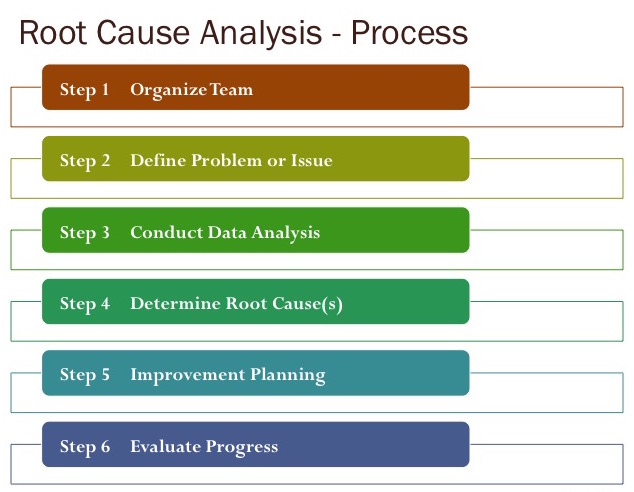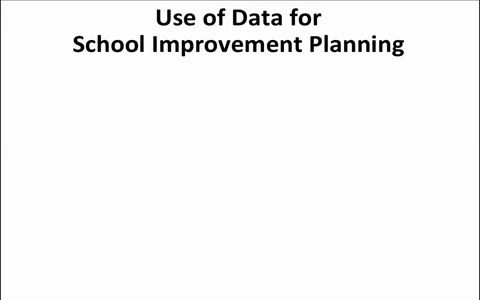Although not a new concept, the process of conducting a “Root Cause Analysis” for school improvement has become more common. The basic premise of Root Cause Analysis is to first focus on identifying problems, and then to identify workable solutions. While this process seems reasonable, maybe even commonsensical, it has not been a typical process for school improvement planning.
That is because, especially in larger school districts, solutions are identified based on trends in education research and/or based on the most common need throughout a district. As University of Illinois-Chicago Professor Shelby Cosner has said:
Many schools don’t start by finding problems within the school that are influencing current student learning, they start by selecting a strategy. By leading with a problem-finding process, improvement strategies are selected that are aligned to the particular problems of a school.
The image below from a presentation by Marilyn Johnson, PhD and the Data Accountability Center presents an order of tasks for the Root Cause Analysis process:

The Comprehensive Assessment of Leadership for Learning (CALL) System was designed to support school and district leaders with steps 2 & 3 (above) due to the following characteristics:
- CALL is a diagnostic tool that reveals areas of strength and focus areas for strategic planning.
- CALL data is action-based, which allows school and district leaders to focus on actual practices.
- The CALL Feedback System provides strategies and suggestions for improvement.
- CALL data fill in gaps that are often overlooked in the data analysis process.
On that last point, the GIF below demonstrates the gap in information that slows down the school improvement process:

Data that are collected and analyzed are usually summative in nature and focus on student achievement...which makes sense since student learning is the ultimate outcome for schools. This desired outcome is dependent upon people in the school: teachers, leaders, and various support staff.
However, there is a lot of “work” happening between “people” and “outcomes.” The people in the school charged with reaching the desired outcomes are engaged in various tasks, activities, routines, and practices that contribute to enhanced teaching and learning.
Therefore, as part of a Root Cause Analysis process, we should examine what people do, and perhaps more specifically, we should examine what leaders do, especially as it pertains to instructional leadership. The CALL System was developed for that purpose, making it a natural fit for this work.